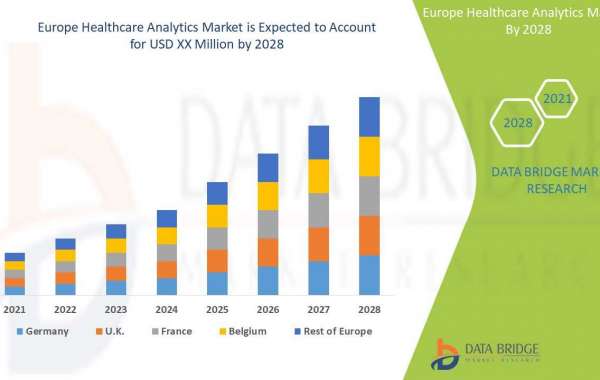In today’s fast-paced digital economy, businesses generate vast amounts of data daily. However, data alone does not create value—insights derived from data do. Organizations need robust analytics tools to process, analyze, and interpret their data to make informed decisions, improve customer experiences, and drive operational efficiency.
Microsoft Dynamics 365 stands out as a powerful solution that integrates advanced data analytics, artificial intelligence (AI), and machine learning (ML) to unlock actionable insights. Whether it's sales, finance, customer service, or supply chain management, Dynamics 365 transforms raw data into meaningful intelligence that businesses can use to stay competitive.
This article explores how businesses can leverage data analytics within Microsoft Dynamics 365, its key features, benefits, and real-world applications.
The Role of Data Analytics in Business Growth
Data analytics enables businesses to:
- Make data-driven decisions – Instead of relying on intuition, leaders can use insights derived from data to guide strategic planning.
- Enhance customer experiences – By analyzing customer behavior, businesses can personalize interactions and improve satisfaction.
- Optimize operations – Identifying inefficiencies in supply chains, workflows, and resource utilization leads to cost savings and productivity gains.
- Predict trends and mitigate risks – Advanced analytics can forecast demand, detect fraud, and identify potential business risks before they become critical issues.
With Microsoft Dynamics 365 Solutions , businesses can seamlessly integrate data analytics into their core operations and achieve these benefits.
Key Data Analytics Capabilities in Microsoft Dynamics 365
1. Embedded AI-Powered Insights
Microsoft Dynamics 365 incorporates AI-driven analytics to provide intelligent recommendations. Tools like Dynamics 365 Sales Insights and Customer Insights use AI to analyze data and suggest the next best action for sales reps, marketing teams, and customer service representatives.
For instance, AI-powered sentiment analysis in Dynamics 365 Customer Service can assess customer interactions and predict customer satisfaction levels.
2. Power BI Integration for Advanced Visualization
Microsoft Power BI seamlessly integrates with Dynamics 365, allowing businesses to:
- Create interactive dashboards and reports
- Perform deep-dive analytics with real-time data visualization
- Connect multiple data sources for a unified view of business performance
For example, a retail company can use Power BI dashboards to track sales performance across multiple locations, analyze customer buying patterns, and optimize inventory management based on demand trends.
3. Predictive Analytics and Machine Learning
Microsoft Dynamics 365 includes predictive analytics capabilities that enable businesses to:
- Forecast sales and revenue trends
- Identify potential customer churn
- Optimize inventory and supply chain operations
For example, manufacturers using Dynamics 365 Supply Chain Management can leverage predictive analytics to anticipate machinery failures and schedule preventive maintenance before breakdowns occur.
4. Customer and Market Segmentation
Dynamics 365’s analytics tools help businesses segment customers based on purchase behavior, demographics, and engagement levels. Dynamics 365 Marketing uses these insights to create targeted campaigns that improve lead conversion rates and customer engagement.
For instance, an e-commerce company can analyze customer purchase history and recommend personalized product suggestions, increasing cross-selling and upselling opportunities.
5. Automated Reporting and Real-Time Analytics
One of the biggest advantages of Dynamics 365 is its ability to automate reporting and deliver real-time analytics. This feature is particularly beneficial for finance teams, who need up-to-date insights into cash flow, budgeting, and financial planning.
With Dynamics 365 Finance, organizations can:
- Monitor real-time revenue and expenses
- Automate financial reconciliation
- Generate detailed profit and loss statements instantly
Benefits of Using Microsoft Dynamics 365 for Data Analytics
1. Improved Decision-Making
By providing real-time insights, businesses can make more informed, data-driven decisions rather than relying on historical data or gut feeling.
2. Increased Efficiency and Productivity
Automated reporting, AI-driven analytics, and workflow automation reduce manual efforts, enabling teams to focus on strategic tasks.
3. Enhanced Customer Experience
With 360-degree customer views, businesses can provide personalized interactions and better customer support, ultimately boosting satisfaction and loyalty.
4. Competitive Advantage
Predictive analytics help businesses stay ahead of market trends, anticipate customer needs, and respond proactively to industry changes.
5. Seamless Integration with Other Microsoft Tools
Dynamics 365 connects seamlessly with Microsoft Azure, Power BI, Excel, and Teams, creating a unified data ecosystem that simplifies analytics and collaboration.
Real-World Applications of Data Analytics in Dynamics 365
1. Retail Industry
Retailers use Dynamics 365 Commerce and Power BI to analyze sales trends, forecast demand, and optimize inventory. AI-driven recommendations improve personalized marketing and customer retention.
2. Manufacturing Sector
Manufacturers leverage Dynamics 365 Supply Chain Management to monitor production efficiency, predict equipment failures, and reduce downtime using IoT and AI-powered analytics.
3. Financial Services
Banks and financial institutions use Dynamics 365 Finance to assess financial risks, optimize revenue streams, and improve regulatory compliance with real-time financial analytics.
4. Healthcare Industry
Hospitals and healthcare providers utilize Dynamics 365 Customer Insights to enhance patient engagement, streamline operations, and improve treatment plans based on data-driven insights.
Final Thoughts
Data analytics is no longer optional—it’s a necessity for businesses aiming to thrive in a competitive market. Microsoft Dynamics 365 empowers organizations with cutting-edge analytics tools, enabling them to unlock valuable insights, enhance decision-making, and drive sustainable growth.
By integrating AI, predictive analytics, real-time dashboards, and seamless data integration, Dynamics 365 provides businesses with a comprehensive analytics solution tailored to their needs.
If you’re looking to harness the full potential of your business data, investing in Microsoft Dynamics 365 is a strategic move toward data-driven success










